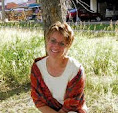September 21 – International Day of Peace
You can’t miss hearing about the horrors of being a Syrian
refugee at the moment. Whatever mode of
news you open or turn on each day, there are more stories to let us know just
how terrible the crisis is. I don’t know how many times I’ve read about how
someone hopes and yearns for a place to settle and just live their lives in
peace.
September 21st marks the UN International Day of Peace, a day “devoted to strengthening the ideals of peace, both within and
among all nations and peoples.”
Seems to me that we might have a ways to go on this one.
Here are a few recommendations to open discussions and explore issues:
ELEMENTARY
Peace by Wendy Anderson Halperin
The Toa Te Ching poses the question, how can we bring peace
to the world?. Using beautiful quotes
and illustrations the big concept of peace is explored, from a global
perspective to more personal one.
Peaceful pieces: poems and quilts about peace by Anna
Grossnickle Hines
A collection of poems beautifully illustrated with quilted
pieces that offer reflections about the nature of peace and conditions that can
conspire to create atmospheres where peace doesn’t exist.
MIDDLE SCHOOL
Countdown by Deborah Wiles
A historical novel that looks at the trials and tribulations
of preteens during the period of the Cuban Missile crisis in the 60s. Included
are all sorts of primary document sources like headlines of news articles,
songs, poetry, and government pamphlets about safety if a nuclear bomb should
be dropped.
Thanadelthur: peacemaker of the Chipewyan by Claude
Belanger
Thanadelthur was a Chipewyan woman, who worked to establish
peace with the Cree to promote better trade relations with the Hudson’s Bay
Company in the early 1700s. This short
play could be used for readers’ theatre.
Why do we fight?: conflict, war and peace by Niki Walker
Looks at real world conflict situations to explore the issues related to
war and peace.
SECONDARY
Kamakwie: finding peace, love and injustice in Sierra Leone
by Kathleen Martin
Not the easiest of reads but illuminating nevertheless. Martin recounts her time and the people she
met while living in a village in Sierra Leone. She explains how civil war has played a huge
part in contributing to brutal living conditions which continue to impact the
villagers.
Peace: the biography of a symbol by Ken Kolsbun
From the 50s to present, relates how this image has been
used over time with lots of photographs.
TEACHING BOOKS
World peace and other 4th grade achievements
by John Hunt
Fascinating look at Hunter’s approach to
teaching and his development of a simulation that taps into gaming and
challenges young people to figure




















0 comments:
Post a Comment